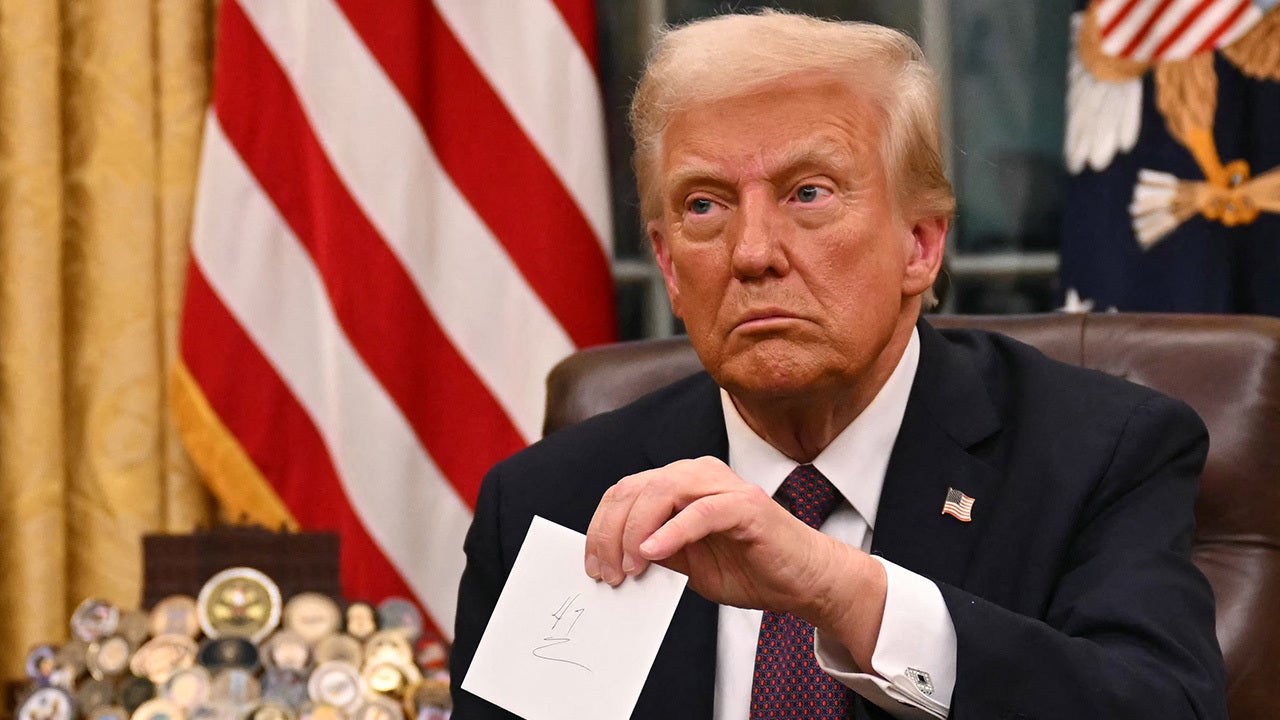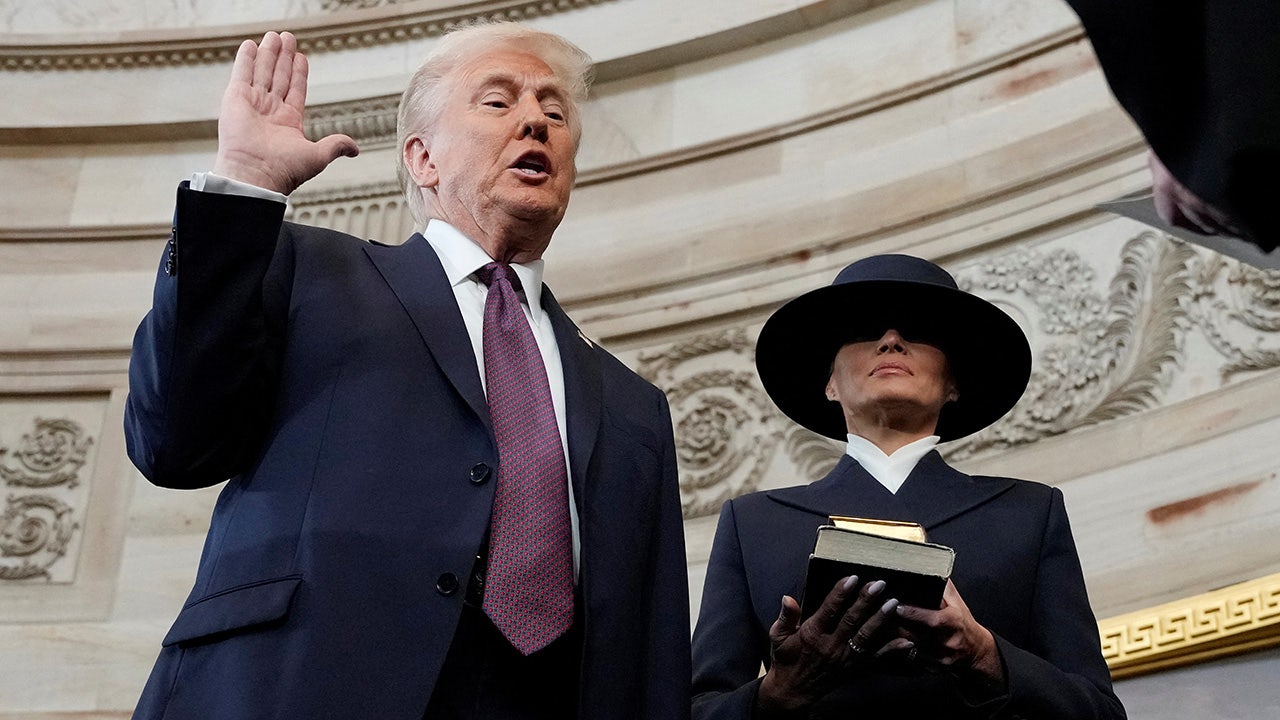The threat of a regional war in the Middle East is troubling world leaders as Islamic extremist groups climb back to the top of international headlines, this time with the backing of state-sponsored terrorism.
The Houthi terrorist group has been a long-standing nuisance in the Red Sea due to its near-decade-long attacks on military and merchant ships using increasingly sophisticated weapons systems.
Following Hamas terrorists’ deadly Oct. 7 assault on Israel and the subsequent war in Gaza, Houthi-led attacks in the Red Sea have drastically increased, and the group has vowed not to cease its operations until Israel stops its attacks against Hamas and the Palestinian people.
However, these strikes are rooted in more than Houthi opposition to the war in Gaza and point to an increasingly sophisticated geopolitical tactic by U.S.’s chief adversaries, Iran and Russia.
Houthi fighters march during a rally of support for the Palestinians in the Gaza Strip and against the U.S. strikes on Yemen outside Sanaa on Monday, Jan. 22, 2024. Thousands of fighters from Iran-backed groups in the Middle East are offering to come to Lebanon to join the militant Hezbollah group in its fight with Israel. (AP Photo)
HAMAS LEADER ISMAIL HANIYEH WAS KILLED IN TEHRAN BY HIDDEN EXPLOSIVE DEVICE: REPORT
“The Houthis have become a major player in Iran’s strategy to tighten the noose around Israel,” Bill Roggio, senior fellow at the Foundation for Defense of Democracies and founding editor of “The Long War Journal,” told Fox News Digital.
However, the Houthi attacks in the Red Sea are not only playing into Iran’s strategy, they are aiding Russia in its war against Ukraine, and by extension, the U.S. and NATO.
Reports surfaced earlier this month suggesting that Russia may be looking to arm Houthi terrorists in the Red Sea in retaliation for the U.S.’ immense support of Ukraine.
Though U.S. defense officials have said they do not believe Moscow has yet transferred any arms to the terrorist organization, the news followed a meeting that Russian Deputy Foreign Minister Mikhail Bogdanov reportedly had with Houthi spokesman Mohammed Abdel Salam earlier this year.
The meeting was an alleged attempt by the militant group to encourage Russia to put pressure on the U.S. and stop the war in Gaza.
Western defense officials have been sounding the alarm that Houthi attacks in the Red Sea not only threaten the lives of those in international waters, but are contributing to food and trade shortages worldwide, further exacerbating global food insecurity, particularly in Africa, initially started by Russia’s war in Ukraine.
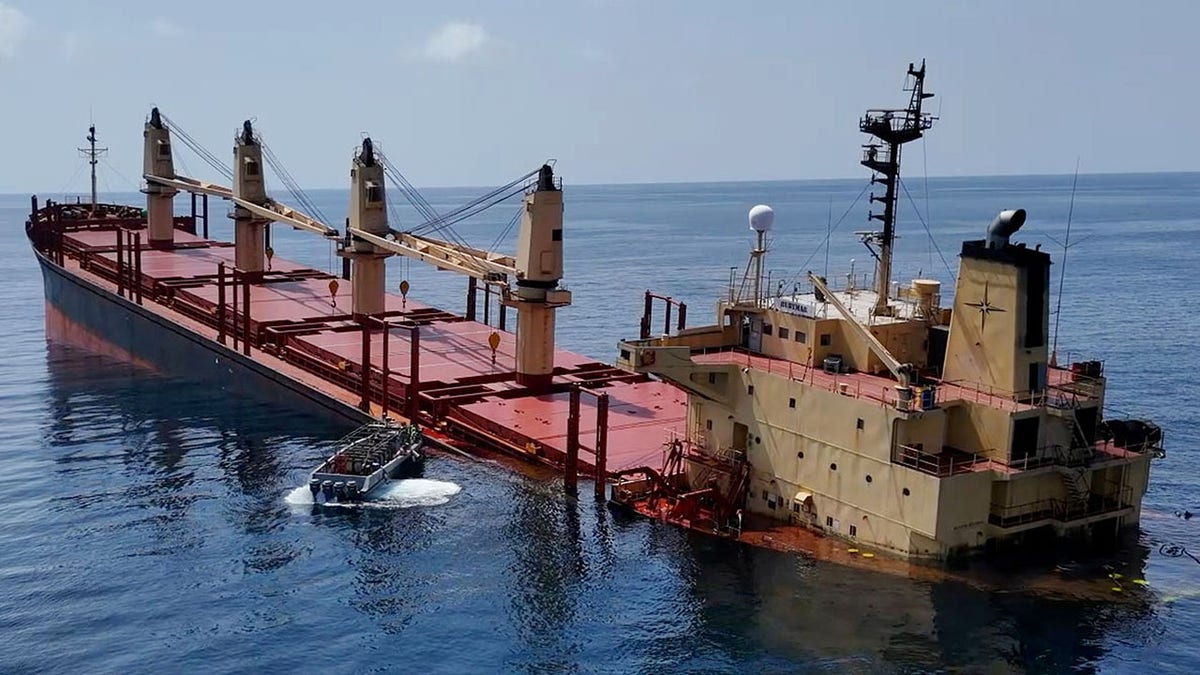
The British-registered cargo ship Rubymar is seen sinking on March 3 after it was targeted by Yemen’s Houthi forces while traveling in the Red Sea. ( Al-Joumhouriah channel via Getty Images)
US FORCES DESTROY HOUTHI DRONES AS TERROR GROUP CONTINUES AGGRESSIVE ACTIONS AT SEA
“You can never look at these things in isolation,” Roggio said. “Anything the Russians can do to punish [the U.S.] – military costs, economic costs, political costs. It’s driving up the costs for the U.S. to support Ukraine by compounding problems throughout the Middle East.”
“The Russians are going to take advantage of any conflicts the U.S. are in,” he added. “We are kind of in a return to a Cold War-type state where this is bleeding over into theaters where the U.S. has direct interest.”
Roggio explained that while its “very possible” Russia is having direct communication with the Houthis, he believes it is more likely that Moscow is working through Tehran.
“What the Iranians are doing is beneficial for Iran,” he said. “Its almost like Russia is outsourcing pain for the U.S….via Iran.”
The Russia-Iran partnership first garnered global attention after Tehran agreed to supply Russian President Vladimir Putin with drones just six months into its deadly war in Ukraine.
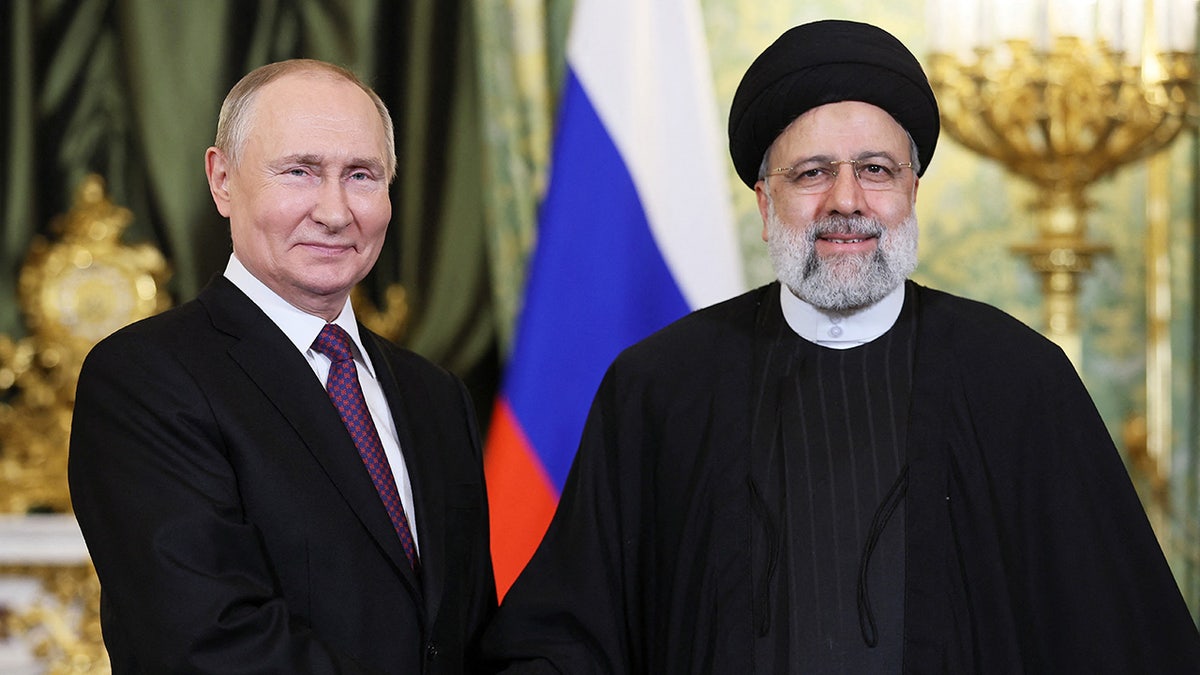
Russian President Vladimir Putin, left, shakes hands with Iranian President Ebrahim Raisi during their meeting in the Kremlin in Moscow on Dec. 7, 2023. (SERGEI BOBYLYOV/POOL/AFP via Getty Images)
Iran and Russia have since established a mutually beneficial partnership in an effort to counter Western sanctions slapped on both nations for varying security reasons.
As attacks by the Houthis in the Red Sea continue to mount, it has become increasingly evident how the militant group is being used by both Iran and Russia for their geopolitical aims.
From mid-October 2023 through July, there have been nearly 290 attacks by Houthi terrorists based out of Yemen directed at merchant and military ships in the Red Sea, as well as strikes against Israel, which the U.S. Navy has helped to intercept, according to the Armed Conflict Location and Event Data, a nonprofit data collection agency.
Despite the increased U.S. presence in the Red Sea, the head of the U.S. Central Command, Gen. Erik Kurilla, reportedly advised Defense Secretary Lloyd Austin that U.S. military operations in the region were “failing” and urged a broader approach, reported the Wall Street Journal earlier this month.
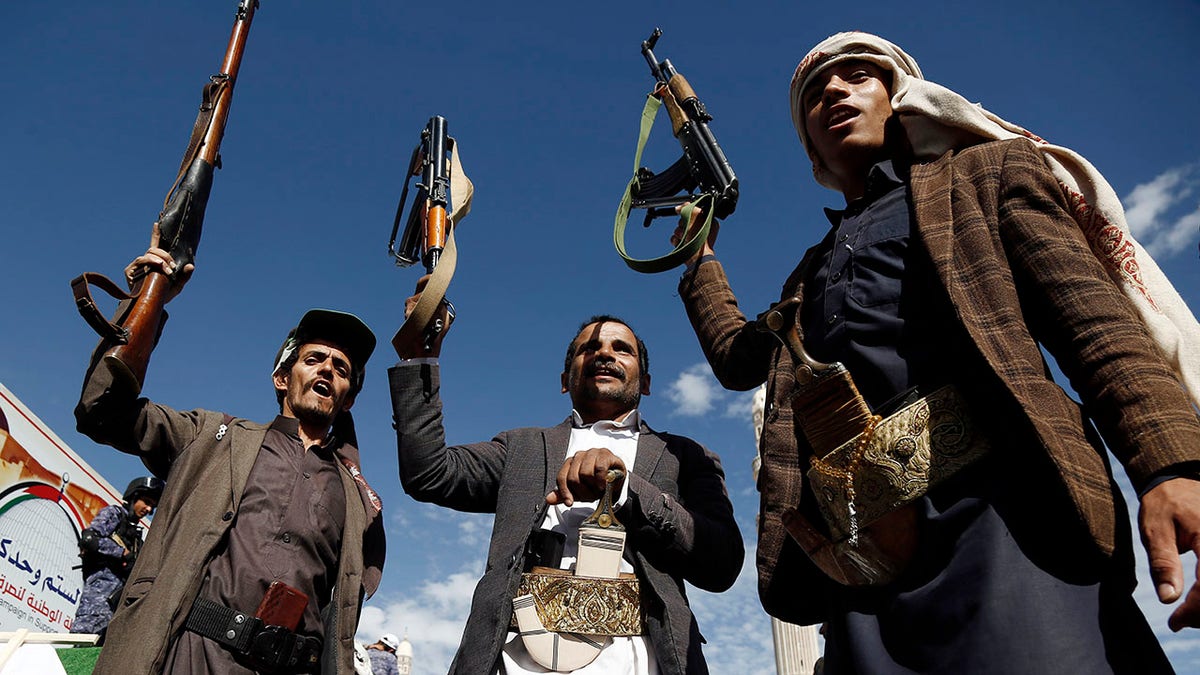
People lift their rifles and chant slogans while participating in a protest staged in solidarity with Palestinians and Yemen’s Houthi rebels in Sanaa, Yemen, on March 22. (Mohammed Hamoud/Getty Images)
CLICK HERE TO GET THE FOX NEWS APP
“What we’re doing is basically targeting weapons systems. We’re not making an effort to target Houthi leadership, to target military and political leadership,” Roggio said. “You really want to get to the root of the problem – it’s the Iranians that are behind all of this.”
“The Iranians have not had to pay a price,” he added. “[They] are happy to let the Houthis fight to the death – that’s not really going to impact the Iranians.”



